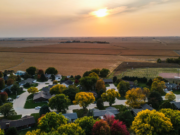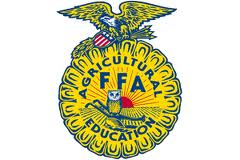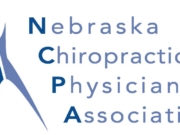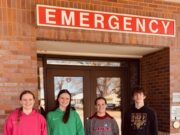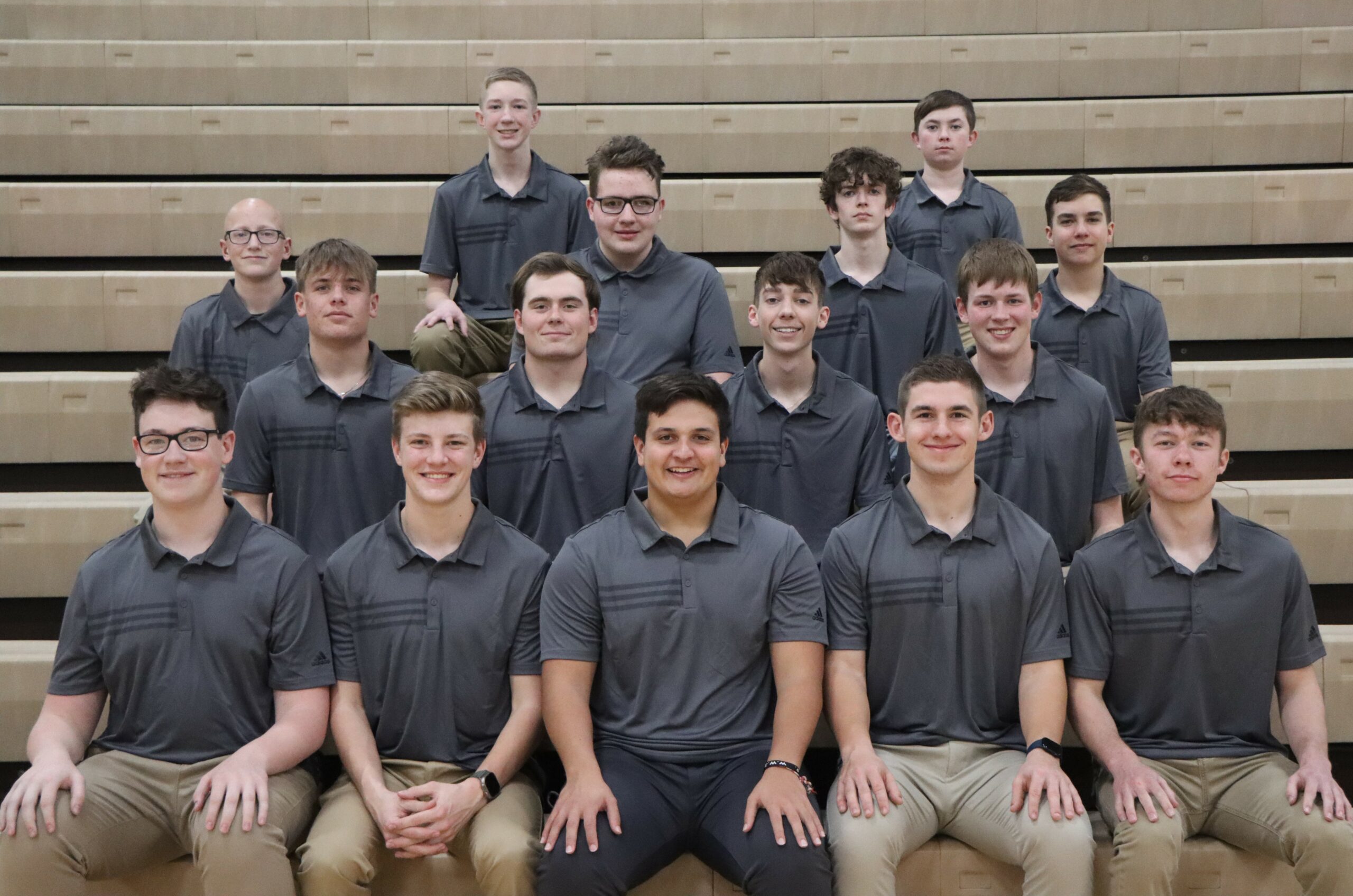Nebraska Weather
We finally received a little moisture, but a little is the key word. January through March we’ve received about 1.20†or about 2.5†short of our normal 3.85â€. For April we’ve received .26†and for the month we normally receive 3.16â€.
Soil temperatures have warmed up some this past week. They’ve averaged 40.3 °F at the 4†depth for the week ending April 6. That is about 7 F below that last three years soil temperatures but up about three degrees from the previous week’s average of 37.8° F. The average soil temperature for April 6 was 46° F.
If you’re interested in the latest soil temperatures, go to our CropWatch website http://cropwatch.unl.edu/ and click on the weather link.
UNL On-Farm Research
I’m currently scheduling appointments with growers to discuss their interest in conducting an on-farm research comparison during the 2014 growing season. These appointments can be done either over the telephone, by e-mail, or in person.
In 2013, we had 36 growers representing 50 on-farm comparisons. These studies represented in-furrow fungicide treatments at planting, corn plant populations, nitrogen rates, starter fertilizer use, and the list goes on and on. To learn more about using your own farm equipment in your fields to answer production related questions, go to: http://cropwatch.unl.edu/farmresearch.
Last season I had five producers in the York/Seward area conduct On-Farm Studies. I’d really like to double or triple that number this year!
Feel free to drop me an email gary.zoubek@unl.edu or call me at 402-326-8185. It’s really not hard, and I’m sure every producer has at least one thing they’d like to compare.
Soybean Cyst Nematodes
It’s not too late to stop by our office and pickup sample bags for a free soil analysis for Soybean Cyst Nematodes (SCN). I just received a summary of the 2013 sampling survey results and of the sample submitted this past year 36% were infested with SCN. The county’s around York (Butler, Clay, Fillmore, Hamilton and Polk) had 79 samples submitted with 42% testing positive for SCN. York had 20% of the samples test positive for SCN.
The SCN Soil Sampling Program will continue in 2014 and sample bags are available at our Extension Offices. If you have a sample bag and have not sent in a sample, you can still use it. Planting is still a few days off, so now’s a great time to get our and collect those samples. Stop by our office for more information or check out this NebGuide: http://ianrpubs.unl.edu/live/g1383/build/g1383.pdf. Since we have options related to this pest, don’t let it rob you of potential yields and profits.
Spring Affair Planned
The annual Spring Affair event will be held Saturday, April 26, at the Lancaster Event Center from 9:00 a.m. to 4:00 p.m. It will include over 500 varieties of plants for sale along with many educational talks, all under the same roof.
This year’s theme is “Plants are the Bee’s Knees,” referring to the importance of gardens as far more than just places of beauty. Gardens are becoming increasingly important for diversity, pollination, wildlife habitat, and other broad environmental issues.
Some of the presentation topics will include: The Buzz on Bees, Great Plants for Great Gardens, and The Difference a Garden Makes. Throughout Saturday, more informal presentations on trees, shrubs, vines, shade, and dry sites will be given around the plant tables.
Admission to this event is free on Saturday but ticketed for the preview event Friday evening. The Lancaster Event Center located on the Northeast part of town and has plenty of parking.
This event is sponsored by Nebraska Statewide Arboretum in partnership with the University of Nebraska-Lincoln Department of Agronomy & Horticulture, UNL Extension and Extension Master Gardeners. This annual event serves as both an educational tool and a fundraising event for the ongoing growth of the arboretum and the department.
For more information, visit: http://springaffair.unl.edu/.
Irrigation Management Cost Share Opportunities
It has not been feeling like spring the past several days, but hopefully it’s around the corner. Now is the time to begin planning and thinking about the upcoming irrigation season. If you’ve been using the ETgages and Watermark Sensors, now is the time to check your inventory to see if you need to replace the ETgage canvas cover, bird spikes etc. Do you need to replace some of the sensors that were damaged or are not working properly?
If you have not been using this equipment, I’d suggest this is the year to give it a try. I’d be happy to assist you installing/using the equipment. This is a short link to the Upper Big Blue NRD 2014 Cost share form: http://go.unl.edu/zkxx. I hope you’ll consider ordering some of the equipment for you this season.
Don’t hesitate to visit with me or Dan Leininger at the NRD if you have any questions about these tools.
HELP — Irrigation Cooperators Needed
We’re looking for potential irrigators to help with an Energy Star Guide project for irrigation pumping plants. The idea is that you match Pump Impeller A with Diesel Engine X and based upon the published values you should be able to pump and acre-inch of water using an AX volume of diesel fuel. So the Energy Star Guide would be a range in gallons of diesel fuel needed for pumping an acre-inch of water (example for 125 feet of lift and 50 psi the system should use 2.19 gallons of diesel fuel per acre-inch pumped). In this example, the system would be operating at 100% of the NPPPC.
What we’re looking for are producers that have systems where the center pivot includes a corner arm or where the pivot irrigates in rolling terrain. Ideally, we are looking for systems that are 5 years old or less. UNL would run a pumping test on your system and share that info with you. If you be interested, give me a call at 402-362-5508 or email me at gary.zoubek@unl.edu. I hope to hear from several producers in our area. I’ll be glad to visit with you if you have any questions.
Crop Scout Training Planned
The training for entry level scouts who will be working for crop consultants, industry agronomists or farm service centers will be held May 6, 2014, from 9:00 a.m. to 5:00 p.m. at the University’s Agricultural Research and Development Center near Mead.
Topics include: how corn and soybean plants grow and develop, soybean and corn insect management, identifying weeds – plant morphology, using a key to identify weed seedlings, crop diseases and quiz, and nutrient deficiencies.
The cost is $135. Fees include lunch, refreshment breaks, workshop materials, and instruction manual. Registrants should preregister one week in advance to reserve their seat and to ensure workshop materials are available the day of the training session. Updated reference materials are included in this year’s take home instruction manual.
A total of 5.5 Certified Crop Advisor Continuing Education Units is anticipated in the integrated pest management (4.0), crop management (1.0) and fertility/nutrient management (.5) categories.
For more information or to register, contact the ARDC, CMDC Programs, 1071 County Road G, Ithaca, Neb., 68033, call 402-624-8000, fax 402-624-8010, email cdunbar2@unl.edu or visit http://ardc.unl.edu/cmdc.shtml.
Fair and 4-H Volunteer Leaders Wanted
It is only the first part of April, however many people are already thinking fair time. We’re always in need of volunteers during entry and judging time in the Ag Hall. It’s a short time commitment, so if you’d like to help in the 4-H or Open Class department, give me a call 402-326-8185 or email me at gary.zoubek@unl.edu.
I’ll be glad to visit with you about some volunteer opportunities.
Yard & Garden
For more than six decades, the University of Nebraska’s Backyard Farmer program has been helping gardener grow healthy productive gardens and solve landscape problems. It’s a science-based, fact-filled and fun TV show. The first show for the new season aired live on NET1 at 7:00 p.m. last Thursday April 3. This season will run weekly through September. It should be another great season of answering your lawn and garden questions.
With temperatures in the mid 60’s over the weekend, it was great to be outside and get some work done. Like most of the area producers, it was time to get a little planting done, so I was able to get some of the cool season crops like peas, radishes, lettuce, potatoes, and spinach planted along with some onions. Other veggies I’ll soon be planting include the cole crops like cabbage, kohlrabi, broccoli and cauliflower along with carrots.
When I plant fine seeded crops like lettuce or kohlrabi, I combine some radishes with them so that they come up first and mark the row. It also helps me with the temptation of planting too many seeds and then having to do a lot of thinning.
Check out our latest horticulture information at: http://environment.unl.edu/. With Arbor Day just around the corner, the latest issue includes some information about tree selection! When the right tree is planted in the right place and cared for properly, it can provide benefits for generations.
When deciding which tree to plant, ask yourself the following questions:
• Why am I planting the tree(s)?
• What are the characteristics of the planting site?
• What is the condition of the soil in the planting site?
• How much time am I willing to spend maintaining the tree(s)?
The tree’s function, form, size and location, as well as site characteristics such as soil & environmental conditions, and pest and disease problems, are all important to consider. Choose plants well adapted to your site to maximize their chances of success.
The story also includes information about Trees for Eastern Nebraska and Western Nebraska, so I hope you’ll check it out and then consider planting a recommended tree or shrub on Arbor Day!








